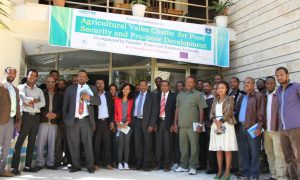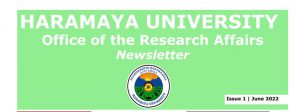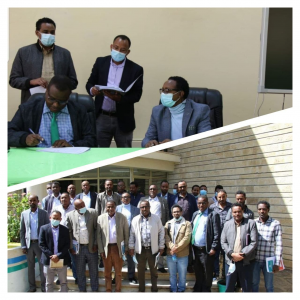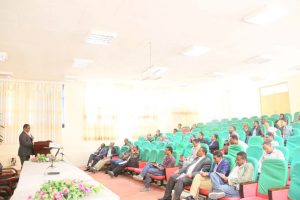A national conference entitled “Agricultural Value Chain for Food Security and Pro-poor Development” has been officially opened today, December 16, 2016, in Haramaya University’s Resource Center.
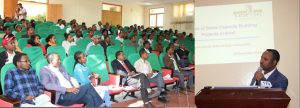 The theme of the conference revolves around the value and importance of agricultural value chain to guarantee food security, to alleviate poverty of smallholder farmers and to corporate the much needed integration between stakeholders: farmers, researchers, wholesalers, retailers, consumers and regulatory institutions.
The theme of the conference revolves around the value and importance of agricultural value chain to guarantee food security, to alleviate poverty of smallholder farmers and to corporate the much needed integration between stakeholders: farmers, researchers, wholesalers, retailers, consumers and regulatory institutions.
The ValueSec Project is a European Union (EU) funded project that has four member universities in it. The collegium is led by Humboldt University of Berlin, Germany with three universities of Africa: Haramaya University (HU) from Ethiopia and University of Nairobi and Karatina University from Kenya.
Dr. Mengistu Ketema, one of the principal leaders of the Project and Director for Research Extension and Publications Directorate, gave a briefing on the major activities of the Project. The objectives of the Project include enhancing research skills of postgraduate students and staff members, establishing linkage between member universities and enhancing curriculum quality and development.
According to Dr. Mengistu, the Project has made numerous contributions to the University in capacity building of University staff members and postgraduate students through the funding of research works, giving training on research and software skill enhancement, building the University’s reputation in the international arena, reducing staff retention and creating linkages with national and international organizations and institutions.
Dr. Bezabih Emana, a private consultant with ample experience in value chains, presented a summary on ‘making value chain development work for the poor’ and identified that ‘not all smallholder farmers are poor, but the majority of them are’, and addressing this important issue would have consequences that benefit the many stakeholders on different levels.
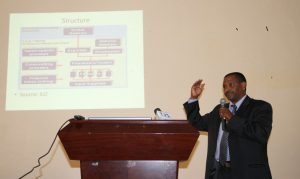 As Dr. Bezabih stated, the global phenomenon is demanding countries and their smallholders to be competitive. Therefore, ‘seeking the market and producing the demand’ is the way to go about ensuring food security and pro-poor development. He said, “We have to go beyond the academic success and address the shortcomings that are on the ground; implement the interventions that are suggested by researchers.”
As Dr. Bezabih stated, the global phenomenon is demanding countries and their smallholders to be competitive. Therefore, ‘seeking the market and producing the demand’ is the way to go about ensuring food security and pro-poor development. He said, “We have to go beyond the academic success and address the shortcomings that are on the ground; implement the interventions that are suggested by researchers.”
Prof. Chemeda and Dr. Belaineh, both, reiterated the importance of agricultural value chain to upgrade the economic status of smallholder farmers. They also stressed the advantage it has to participate concerned stakeholders and the trigger effect it has to everything else done in agriculture.
Food security has been an emphasized issue and a dominating national policy, with good reason, in our country but looking at farming as a business and looking for ways to generate an income from our farmlands; working on the sustainability of interventions; effective usage of cooperatives; encouraging the pro-poor growth through employment and income generation, economic growth through value added to productions, integrations and participations with co-investors, researchers and smallholders, and encouraging innovations in improved seed research should be given priority.
The national conference is graced by researchers and representatives from different universities of the country; and 33 papers were submitted to the organizers from which 16 are selected and being presented. The two-day conference will continue on tomorrow, December 17, 2016. The National Conference is co-organized by ValueSec and Haramaya University.
